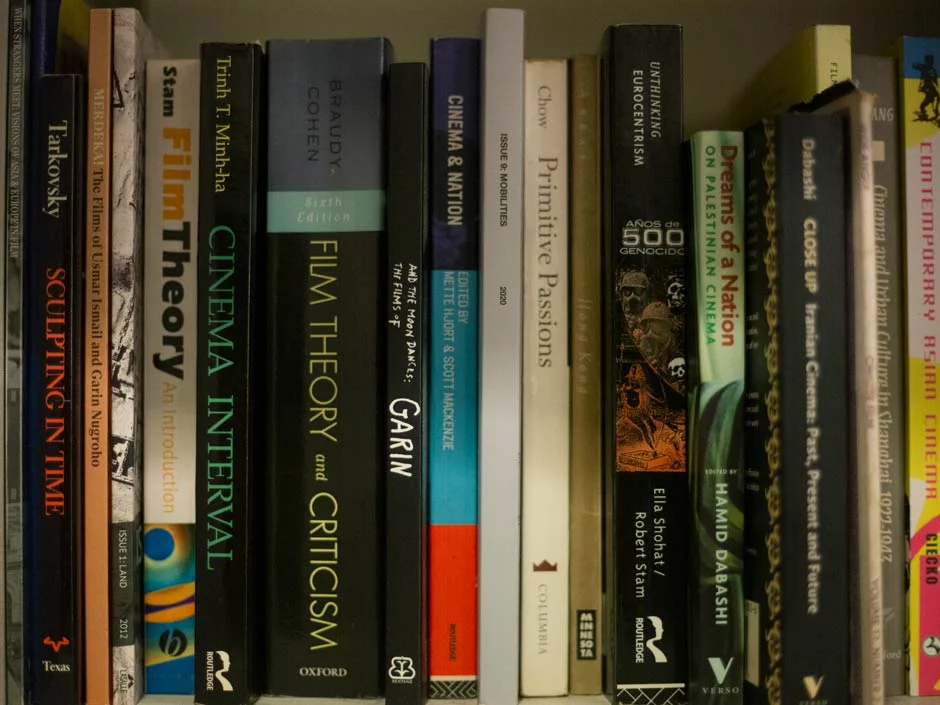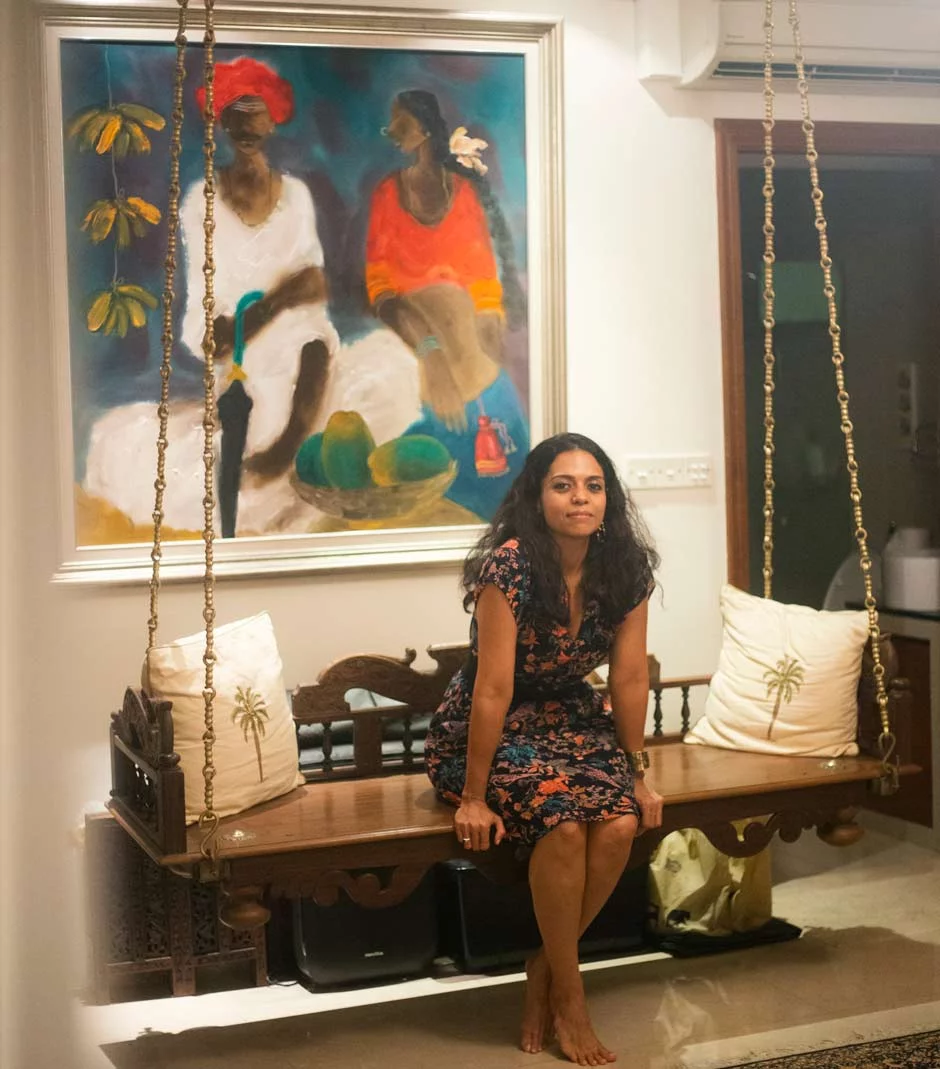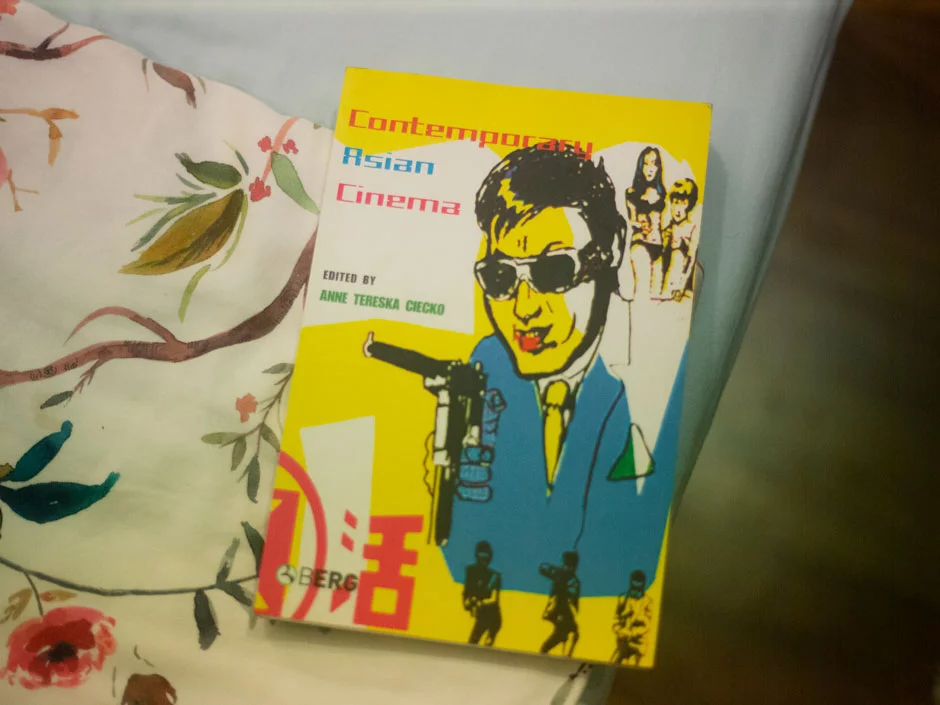Vinita Ramani
Writer + Former SGIFF Staff

What is your fondest SGIFF memory or experience?
I worked at SIFF for the 2002, 2004 and 2005 seasons. But I attended screenings from the age of 16 (wherever I could!). I have so many incredible memories from working with that particular team of what we then referred to as “SIFF”. The team was led by Philip Cheah and Teo Swee Leng, with five of us as the core team, driving the day-to-day operations, with interns and volunteers. But I think one of my fondest memories was the kick-off for day one of the 2002 season. The press conference was about to begin at Swissotel. The room was full and we had prominent filmmakers sitting on the panel upfront. Philip and I stood at the back and he leaned over and whispered, “We’re the Seven Samurai.” I can’t forget that moment. But to be honest, every single time we ushered filmmakers and/or actors to a theatre, the lights dimmed, and a film began, was a special moment. There is nothing like that sensation of being part of a collective experience. The ritual of watching, unpacking and imbibing these images made by artists. The other, more “mundane” but no less profound memory is hanging out at the open-air food court on Victoria street, at the end of the day, eating and drinking with filmmakers and the team.

What does the festival mean to you?
The feeling of being with these people, and a part of something incredible is hard to describe. 2002 is exactly 20 years ago. And 20 years ago, many of the filmmakers from Southeast Asia, who today are well-known, were just starting out. We were at the cusp of something immense: the beginning of what felt like a regional film renaissance. Raw and honest works, startlingly brilliant, were first seen at SIFF and they were selected by Philip. To be there, at that point in Singapore’s history, was an honour. He hates being seen as a “mentor”, so I’d never use that word on him. But he was (and is) a great friend. It was always a very Socratic process with him. We’d arrive each morning at our office in Keong Saik road. We’d head down for coffee and then, Phil will just ask me what I’d watched the previous day, and what I thought about it. Based on my responses, he’ll provide insights; or refer to other films I should watch, or music I could hear which would resonate. That’s how I learned. It set the foundation for how I approached learning in general. After six years of regimented rote-based learning in the Singapore education system, this was a huge paradigm shift. A mental revolution. I loved it.

Why do you think it is important to support SGIFF?
We need independent spaces in which what we program or curate isn’t dictated by what is either financially or politically expedient. If we always have to make compromises and adjustments, we dilute who we are (whether that is a film festival, or whether we are individuals who are learning to appreciate and understand a piece of work). I cannot emphasize enough how important that agency is, because if we have that safe space to play, to experiment and to disseminate ideas, that’s how we grow as a society. That’s how we mature. Film is a medium, so it’s not just about supporting the film festival. It’s about supporting the communities that are behind the making of such works. It’s about making the space for alternate histories; for stories that no mainstream media will ever cover. It’s about challenging how we see, how we perceive the world around us. If we don’t have that, then we’re no better than machines responding to algorithms.

Why do you think storytelling is crucial, especially now?
As a publicist and writer, the part I enjoyed most was spending time with the filmmakers. When they’re at ease and they trust you, they let you into their world and tell you what went into making that film. That kind of insight is profound.
How has film affected your life?
It shaped me as a person! It was part of a holy triumvirate in my life (the other two being literature and music). It showed me a different way to tell stories and test boundaries as a writer.